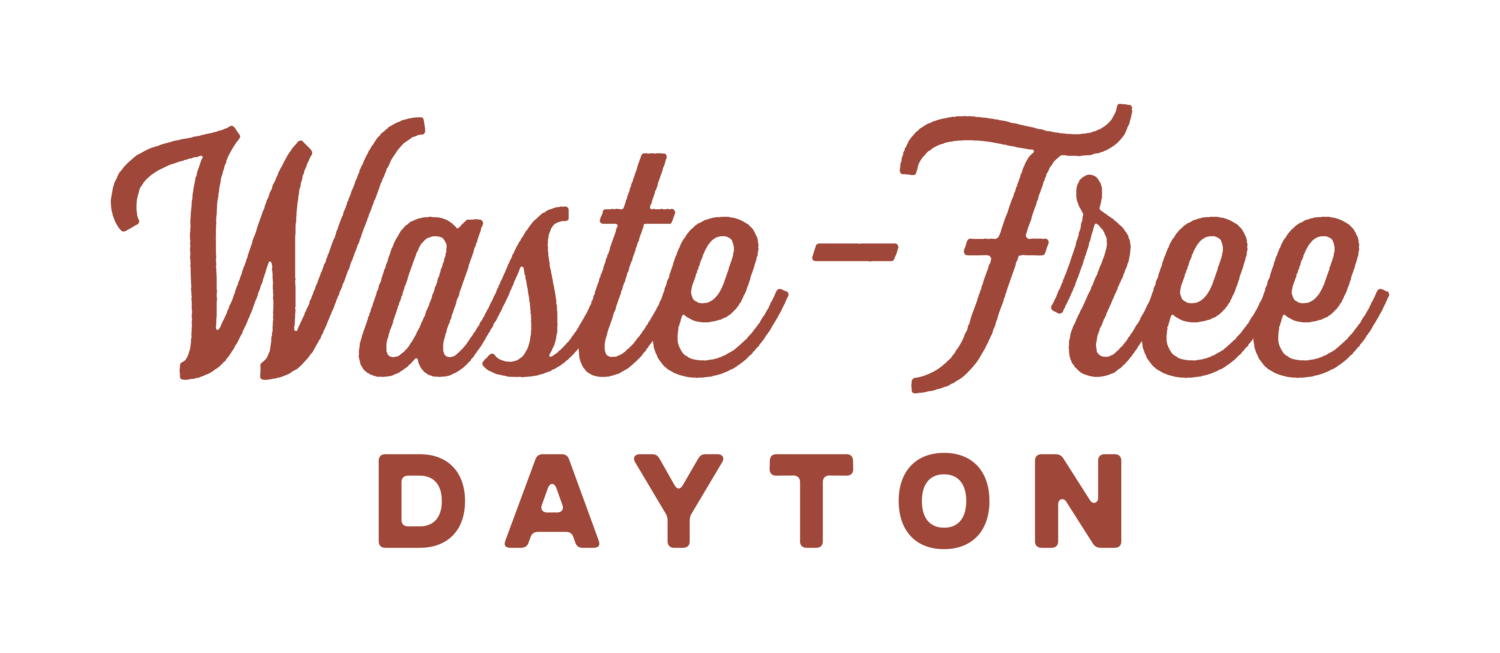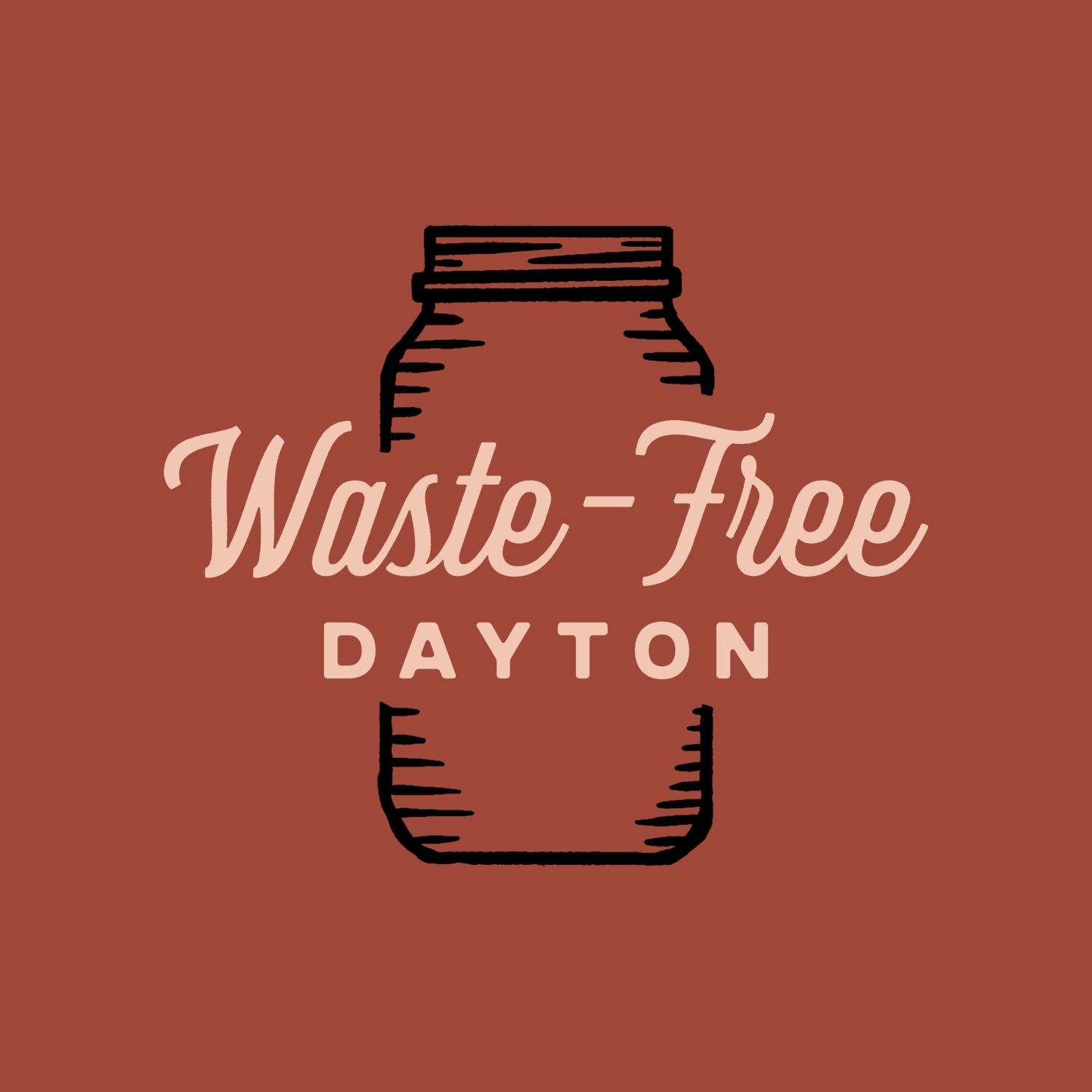Sustainable September
Summer is over and it’s time to start watching the leaves turn, so that means it’s time for Sustainable September! Similar to Plastic-Free July, this is our attempt to make September a month of sharing sustainability tips throughout the month, along with a few special events. You can check out the Sustainable September page on our site for everything planned for the month. As we share tips each week, this blog post will be updated.
Week 1 - Reusables
Did you know that Americans use nearly 100 million disposable coffee cups each week? Exact numbers are difficult to pinpoint but estimates range between 16 billion and over 100 billion coffee cups used each year, and using one of the commonly cited numbers, 50 billion, equates to almost 100 million per week. This stat highlights how a simple change in behavior can have a big impact. If one coffee lover chooses to bring their coffee travel mug to the coffee shop, that person can prevent 200-500 cups from going to the landfill every year.
Travel coffee mugs are one type of reusable that we suggest having with you at all times. By creating a Sustainable Go Bag, you can be prepared for any emergency for which you might need a reusable. Here are some items you might consider keeping in your go bag:
Coffee Travel Mug
Reusable Water Bottle
Reusable Straw
Cloth Napkin
Silverware
Container for Leftovers
Reusable Bags including bags for produce
Putting all of these items in a bag and keeping it in your car or a pack you can carry with you wherever you go is a practice that takes some initial effort, but once you establish the habit, it’s so satisfying to pull out your reusable when you need it.
Come back next week when we share a tip about Food Waste.
Week 2 - Food Waste
For our second week in this campaign we are focusing on Food Waste. Unfortunately the United States wastes a lot of food; about 40% of what is produced ends up going to waste! So we could say that nearly half of food in the United States goes to waste, and that affects humans who go hungry as well as our wallets (about $161 billion lost).
We also want to acknowledge that farmers work extremely hard around the world and locally to grow food for us (farmers make up of less than 2% of the U.S. population!) Many times, there can be a huge disconnect between big box grocery stores and the farmers trying to make a living selling their produce—long before we as consumers come into the picture. Visit the Hall Hunger Initiative website to learn more about closing that gap and how you can still help make a difference simply by learning and helping!So with all this waste, let’s try to make a change!
This week and next, try to consume all of the perishable food in your fridge.
Things like making a menu for the week and sticking to a grocery list can do wonders. See our Tips For Going Waste-Free page for more ideas!
And…when food ultimately does go to waste, another option is composting! The EPA states that in 2019, 66.2 million tons of wasted food were generated in the food retail, food service and residential sectors in the United States. And only 5% of that was composted! Restaurants and businesses can be a whole other matter—and maybe you or someone in your household is a wizard when it comes to planning meals. Then your next challenge could be trying out composting.
Make your own compost pile in your backyard
Get a compost bin
Or sign up for our free composting program!
Week 3 - Household & Personal Care Products
There are ample opportunities to take small steps to live more sustainably in the area of household and personal care products, because there are lot of these products that we use in our daily lives that involve plastic. Let’s start with laundry and dishwashing soap. The predominant packaging for these products over the last few decades has been in plastic bottles. Now, pods are becoming more popular, which raises more concerns. The “plastic” material that comprises the pod is allegedly biodegradable, according to the companies that make the products. Polyvinyl Alcohol (PVOH or PVA) is a synthetic polymer, which according to others, may only biodegrade in certain circumstances. With 20 billion pods dissolving and going down our drains each year, should we take that risk? Skip the plastic packaging, and make a more sustainable choice. We are fortunate to have brick and mortar options in the area like the Reduce & Reuse Refillery (Dayton and Oakwood) and Designs From The Grove (Troy) where you can buy liquid or powder detergent, and use your own containers.
For personal care, an easy sustainable swap involves your toothbrush. Based on the average number the average American uses per year, it’s estimated that upwards of a billion toothbrushes go to the landfill each year. And since the modern plastic toothbrush was invented in the 1930’s, every single plastic toothbrush ever made still exists, since it would take hundreds of years for the toothbrush to break down in a landfill. If you haven’t already, you should switch to a bamboo toothbrush. They may be slightly more expensive than a plastic one, but you only have to buy a few a year, and when you’re done with it, you can compost it (the bristles on most toothbrushes are still nylon so you will have to cut the head off). One person switching to a bamboo toothbrush won’t make a dent into the number of plastic toothbrushes being made and going to the landfill, but more awareness and more people sharing their sustainable practices will lead to more and more people switching.
Week 4 - Self-Care
As individuals striving to live more sustainably, it is important to have regular self-care practices in our routines. And as advocates and activists working on environmental issues, it is critical to avoid burn out to take time for rest and improving our physical, mental, and spiritual health. Here are some examples for self-care:
Physical
Exercise
Yoga/Stretching
Outdoor Activities
Eating Healthy
Sleep
Mental & Spiritual
Silence & Solitude
Reading
Prayer/Meditation
Take Breaks
Sustainable Self-Care
Take a Walk
Declutter
Watch a Favorite Movie
Tap into Creativity
Other
Learning
Hobbies
Be in Community
Practice Gratitude
Honor Your Feelings
Check out the following resources for more on self-care.
https://www.goingzerowaste.com/blog/sustainable-ethical-and-cheap-15-self-care-ideas/
https://myjourneytogreen.com/sustainable-self-care/
https://crowdsourcingsustainability.org/mindset-self-care-community-and-persistence
https://www.wastefreedayton.org/tips-for-going-waste-free#RunningHikingandCamping
Week 5 - Advocacy
Action items to advocate for a healthier and more sustainable future:
Show your support for the Global Plastics Treaty
Tell the EPA to ban toxic vinyl chloride
Follow and support Save Ohio Parks as we work to stop fracking on public lands







